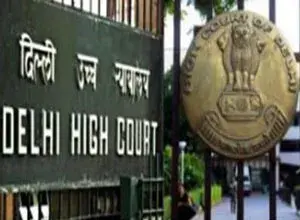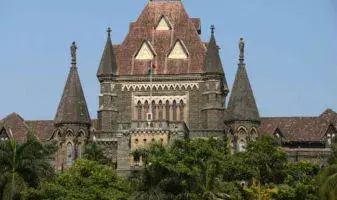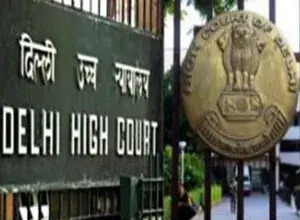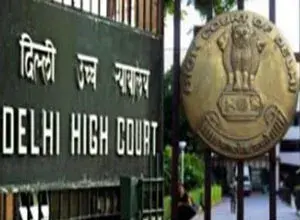India: Highlights of the New Delhi High Court (Original Side) Rules, 2018- Part I of II:A Handbook for Lawyers

Source : www.delhihighcourt.nic.in
Pursuant to Supreme Court’s Order dated January 09, 2018, in Suo Moto Writ Petition in Re: Case Management of Original Suits[1] , wherein the bench, constituted by Justices Ranjan Gogoi and R Banumathi, asked the Delhi High Court to lead by framing new procedural rules for cases heard under its Original Jurisdiction. It was stated in the order that “the Hon’ble Judges of the Delhi High Court have to work out ways and means for effective disposal of the IPR matters before it so that a model for disposal of civil suits can be culled out from the ways and means adopted by the Delhi High Court which can form the basis of an uniform action plan for the rest of the country.”
Following the said order, the Delhi High Court notified the Delhi High Court (Original Side) Rules, 2018, which provides for cutting down time of litigation, streamline the procedure for completion of Pleading, interrogatories, discovery, appointment of Local Commissioner, checking unnecessary adjournments and imposing cost for causing delay etc. The said rules came into force with effect from March 01, 2018.
The Rules are running in to XXXI Chapters, and for the sake of convenience, we dealt with Chapter I to XV in our first post and Chapter XVI to XXXI are dealt with in our second post.
Some of the highlighted changes brought about by the new rules are as follows:
CHAPTER II: EXERCISE OF ORIGINAL CIVIL JURISDICTION
The new rules have done away with Rule 7 of Chapter II of the Delhi High Court (Original Side) Rule, 1967, which dealt with disposal of matter by Judge in Chambers, for eg., appeal from the order of the Registrar or a reference made by him or directed to be made by the Judge in Chambers; application for arrest before judgement, for attachment before judgement and for appointment of receiver etc.
CHAPTER III: FORM OF PLEADINGS
-
Rule 1, every Plaint, Written Statement, Application, Petition and the like presented to Court, shall be, subject to Annexure- C to these Rules, lithographed or printed in double spacing on one side of
A4 size white paper[2] with the following format settings:- Paper size : A- 4
- Margins : Top & left- Three centimeter, Right- One centimeter &
Bottom- two centimeter - Justification: Full
- Font: Times New Roman
- Font size: 14
- Rule 2- At the foot of every pleading and vakalatnama[3] , the name, enrolment number, phone number, email-id of the advocate, along with his/her signatures, must be mentioned thereto.
- Rule 3- The address for service filed with every initial Pleading on behalf of the party, shall contain, as far as possible, the complete address the phone number(s), mobile number(s), fax number(s) and e-mail address(es), if any, of the addressee.
- Rule 5- English translation of the document, in addition to the previous prescribed ways, prepared by an official translator from authorities/bodies duly recognized by the Court, Central or State Government is also recognized.
- Rule 6 is added in respect of service of Petitions under the Arbitration & Conciliation Act, 1996. It is now mandatory to serve an advance copy of the Petition/Application together with annexures, if any, upon each opposite party where an Application/Petition under Section 9, Section 11, Section 14, Section 15, Section 27, Section 34 or Section 37 is filed. If the Petition is to be filed against Union of India, State Government, Statutory Authority, Public Sector Undertakings or a Government Department; the copies shall be served upon their nominated counsel and not directly to the government offices.
CHAPTER IV: PRESENTATION OF PLEADINGS, OTHER DOCUMENTS & MAINTENANCE OF CASE FILES
- Rule 1(d) provides that the Plaintiff shall also specify in the index whether original(s) of documents are filed and in whose custody, power, control and possession, and on what basis Plaintiff makes the said statement. Rule 1(e) provides that where a document relied upon, is an entry in a shop book; other accounting records or an electronically maintained record, shall file a certificate from an internal accountant or an external auditor, confirming the correctness of the same, besides filing an affidavit under Section 65B of the Indian Evidence Act, 1872, wherever applicable.
- Rule 3 provides that, if on scrutiny, the pleading/document is found defective, the same must be returned for amendment and re-filing within a time not exceeding 7 days at a time and 30 days in aggregate. If the same is not done, then it shall be registered and listed before the court for its dismissal for non-prosecution. Beyond the prescribed time, it shall be accompanied with an application for condonation of delay in re-filing of the said pleading/document.
- Rule 9 prescribes the new way in which the files/documents are to be arranged as under:
(i) Main file or part I of the suit record, which, shall comprise of two sub-parts, 1-A and 1-B;
(ii) Interlocutory application file or Part II of the suit record;
(iii) Documents file or Part III of the suit record;
(iv) Evidence file or Part IV of the suit record; and
(v) Miscellaneous file or Part V of the suit record.
The order of contents of the abovementioned files are specified in Rule 9-13.
CHAPTER VI: PROCESSES/NOTICES ETC
- A new clause (e) has been added and service by way of electronic mail, fax, SMS and any other web based or virtual communication mode have been recognized and publically available email address and fax number either on the website of the party or in the public domain/records shall be deemed to be the correct email address, fax numbers, respectively.
- As per Rule 13, service by any of the recognized modes shall be deemed to be service.
- Rule 19 provides for practice direction for issuance of summons has been added in the rules as Annexure A- “Practice Directions for issuance of summons/ notices through speed post/ registered post with Proof of Delivery (POD) in the High Court of Delhi”
CHAPTER VII: APPEARANCE BY DEFENDANT, WRITTEN STATEMENT, SET OFF AND COUNTER-CLAIM
- If the summons is for appearance and for filing Written Statement, then the Written Statement shall not be taken on record unless filed within 30 days from the date of such service or within the time provided under these Rules or CPC or Commercial Act as applicable.
- Defendant & Plaintiff shall file their Affidavit of Admission & Denial of documents alongwith their Written Statement and Replication respectively. Without that, their Written Statement and Replication, as the case may be, shall not be taken on record.
- In case the Defendant & the Plaintiff fails to file their Affidavit of Admission & Denial of Documents of each other, they shall be deemed to have been admitted the documents of one another.
- 30 days’ time extendable to further 15 days is also granted to the Plaintiff to file Replication.
- For each delay in filing Written Statement & Replication, the Defendant & the Plaintiff, respectively, shall be burdened with cost.
CHAPTER VIII: DISCOVERY, INSPECTION AND INTERROGATORIES
- Under Rule 1(f) of Chapter IV, Plaintiff is entitled to file an application for Discovery & Inspection of Documents & Interrogatories alongwith the Plaint. Under the chapter, the Plaintiff is also entitled to file an application for Interrogatories within 15 days of receipt of written statement from the Defendant.
CHAPTER IX: MEDIATION/SETTLEMENT, JUDGEMENT WITHOUT RECORDAL OF EVIDENCE, EXAMINATION OF PARTIES & FRAMING OF ISSUES
- On the first hearing of the proceedings, the court shall ascertain from the parties whether they admit the allegation of fact made against each other. If any party makes such admission, court may record such admission and pronounce the judgement.
CHAPTER X: INTERLOCUTORY APPLICATIONS
- Where an advance copy of the application has been served on the non-applicant or his advocate, the court shall proceed to hear the application and pass appropriate order without issuing any notice to the non-applicant or his advocate, unless it directs otherwise.
- Applicant shall be bound to intimate all the opposite parties by any or all modes including SMS, email or fax etc. the date on which the said application is scheduled to be listed.
- Provision is made to file an application for the purpose of hearing ex-parte ad-interim injunction in camera and if such application is allowed, only the names/pseudo names of the Applicant shall appear in the cause list as may be directed by the court.
CHAPTER XI: EVIDENCE & WITNESSES
- Rule 1 – Cases for recording of evidence have to be categorized into following classes:
(a) Cases where evidence is to be recorded in Court;
(b) Case where evidence is to be recorded before the Registrar; and
(c) Cases where evidence is to be recorded before a commissioner;
However, the court may in its discretion, considering the nature of the witness, issue notice in nature of the witness to be examined, give directions with regard to recording of evidence of such witness(es) before itself. Even the court may change the category of a case, if the circumstances so require. - Rule 3a has prescribed therein a form for filing the list of witnesses.
- Rule 11- objections to exhibiting any document or its production, shall be recorded to be decided at the time of decision of the suit other than original proceeding, unless the registrar/ commissioner deems that the objections needs to be decided forthwith, he shall place the matter before the court, without delay after recording of rules.
- Under Rule 13, the evidence of an outstation witnesses shall be done on day-to-day basis, till the witness(es) is discharged.
- Under Rule 20, the party-in-person or his authorized agent or representative of corporate body is to appear before any witnesses on its behalf are examined, however the Court/Registrar/Commissioner may on an application, allow them to appear as his/her own witness at a later date and be examined later.
- Under Rule 24, any party seeking to tender any electronic record shall do so in a CD/ DVD/ Medium, encrypted with a hash value, the details of which shall be disclosed in a separate memorandum, signed by the party in the form of an affidavit.
- Under Rule 28, the parties/ witnesses shall be entitled to a copy of deposition, free of cost, at the conclusion of each date.
- Under Rule 34, except with the leave of the court, no document which is not in English, shall be read or received in evidence, unless it is translated in English in accordance with these Rules.
- Under Rule 38, the Court/ Registrar/ Commissioner may, if it deems appropriate, direct use of video conferencing in accordance with guidelines issued by Court, from time to time, for conduct of court proceedings between Court(s) and remote site(s). Guidelines are provided in Annexure B.
CHAPTER XII: COMMISSONS
- Rule 3- in addition to various modes of service, in cases where the Local Commissioner is appointed for search, seizure, etc., he may be directed to serve the summons on the defendant alongwith Plaint, documents etc. with direction to mention such service in its report and such report would be deemed as sufficient service of the concerned person.
- Rule 4 says that Commissioner shall make disclosure of its conflict of interest with any party/lawyer/law firm involved in the matter.
- The names of the persons appointed as Commissioner(s) together with details of cases in which they were appoint shall be maintained in a database.[4]
- The Commissioner shall complete recording of evidence, within the time stipulated by the Court and in any case within six months from the date first fixed before him. In case the recording of evidence cannot be completed within the timeline fixed by the Court, the Commissioner shall furnish a report explaining reasons for delay and direct parties to seek appropriate orders from Court.
- For the first time, the rules provides a provision for Foreign Commissions, wherein the examination of witnesses is to be conducted in foreign countries, which will be governed by directions issued by appropriate authorities from time to time.
CHAPTER XIII: ADJOURNMENTS
- As per the rules, adjournment shall be granted only in exceptional cases, which must be recorded in writing. From now onwards, the consent of the parties shall not be a good cause for seeking adjournments. Now exemplary cost may also be applied as per Chapter XXIII of 2018 Rules.
CHAPTER XIV: HEARING IN FINAL MATTERS ETC.
- Rule 2(b) provides that it will be the duty of the advocates of parties to exchange their final arguments, list of judicial precedent to which they are likely to refer, atleast one week before the date of final hearing.
- Rule 2(c) prescribes that the advocates shall submit a short synopsis of not more than five pages, arranged issue-wise, atleast two days before the date of fixed for final hearing of arguments.
- Rule 3 provides that the court master shall make a note of the time at which each hearing commenced and terminated on each day and it shall be recorded as part of record of proceedings for that day.
Description:
This article highlights the major changes brought about in the newly implemented Delhi High Court (Original Side) Rules, 2018.
[1]Suo Moto Writ Petition (Civil) No(s). 08/2017.
[2]Rule 1 (ii), Chapter III, Delhi High Court (Original Side) Rules, 2018.
[3]Rule 3, Chapter V, Delhi High Court (Original Side) Rules, 2018.
[4]Rules 7, Chapter XII, Delhi High Court (Original Side) Rules, 2018.
India: Conviction of an Indian citizen by a Foreign Court won’t be binding on Indian Courts

Source: bombayhighcourt.nic.in
The Oxford English Dictionary defines conviction as ‘a formal declaration by the verdict of a jury or the decision of a judge in a Court of law that someone is guilty of a criminal offence.’[5] A Court of law convicts a person or holds him/her guilty only after evaluating the facts, evidences placed on record and the merits of the case. One question that recently arose in a case was whether a conviction of an Indian by a Foreign Court for the offence committed in that country can be taken note of by the courts or authorities in India?
Significantly, the Hon’ble Full Bench of the Bombay High Court while delivering a decision in the case of Prabodh K. Mehta v. Charuben K. Mehta on March 1, 2018, held that ‘Conviction of an Indian citizen by Foreign Court for the offence committed in that country can be taken note of by the Courts or Authorities in India. However, it cannot be said that the same will be ipso facto binding on such courts and authorities in India and they must exercise their discretion considering facts of the case and variety of factors involved therein.’
The Hon’ble Court clearly explained in its judgement that the consideration in a case would always be independent and will always be on a case-to-case basis, only after analyzing the effects of the foreign judgement and order of conviction.
Facts of the case
- In January 15, 2007, Prabodh K. Mehta (hereinafter referred to as ‘the Appellant’) was appointed as a trustee of the Lilavati Kirtilal Mehta Medical Trust for a period of 5 years.
- A Court in Belgium allegedly convicted the Appellant of an offence of moral turpitude.
- On April 28, 2008, Charuben K. Mehta (hereinafter referred to as ‘the Respondent’) filed an Application, under Section 41D of the Maharashtra Public Trusts Act, 1950, before the learned Joint Charity Commissioner, Greater Mumbai, seeking removal/dismissal/suspension of the Appellant as a trustee on the ground that he was allegedly convicted of an offence involving moral turpitude by a Court in Belgium.
- However, on October 18, 2011, through a resolution passed by the trustees of the said trust, the Appellant was again appointed as a trustee for a further period of 5 years.
- On March 8, 2013, the Learned Joint Charity Commissioner allowed the said application filed under Section 41D thereby removing the Appellant from the said trust for the remaining tenure. The reasons for the order of the City Civil Court was that the Respondent had proved that the Appellant was convicted of an offence involving moral turpitude.
- On July 20, 2013, an appeal was filed before the Division Bench of the Bombay High Court. The basis of the appeal was that the Court in Belgium later pardoned the Appellant and thus, his criminal record stood erased.
- The Division Bench was of the view that the crime committed by the Appellant in Belgium during his tenure as a trustee in India could not be ignored, since its own laws on the subject were also very stringent.
- The question of law was referred to the Hon’ble full bench and with the consent of the parties the question was reframed as under.
Issues
- Whether the conviction of an Indian by a Foreign Court for the offence committed in that country can be taken notice of by the Courts or authorities in India while exercising their judicial or quasi-judicial powers?
- As to whether such a conviction would be binding on the Courts and authorities in India while exercising judicial and quasi-judicial powers?
Appellants Contentions
- It was contended that the judgment and order of conviction by a Foreign Court for the offence committed in that country cannot even be looked into or no notice should be taken of the conviction, by the Indian Courts.
- In support of its contention, it relied upon decisions, namely Govind Kesheo Powar vs. State of Madhya Pradesh and others (Nagpur High Court) and Union of India and others vs. Susanta Kumar Mukharjee (Calcutta High Court) and various foreign decision from UK i.e. Kings Bench Division in Banco De Vizcaya vs. Don Alphons De Borbon , Queens Bench in United States of America vs. Inkley , Kings
Bench in Raulin vs. Fischer etc. - Further, it was submitted that it has been consistently held that the Court of one country would not directly or indirectly execute decree of the Court of another country and if the Court of one country is permitted to take note of decree of the Court of another country, it will amount to nothing else but indirect enforcement of decree of the Foreign Court.
Defendants Contentions
- It was submitted that though the judgment and order of conviction passed by the Foreign Court may not be binding on the Courts in India, the same, however, could be noticed and recognized while exercising judicial or quasi-judicial powers by the Courts and authorities as the case may be in India.
- It further submitted that that, enforcement of a judgment of Foreign Court is distinct from recognizing or noticing the said judgment by the Courts and authorities in India.
- Relying on the judgement in the case of
Indian and General Investment Trust Ltd. v. Sri Ramchandra Mardaraja Deo, Raja of Khalikote, the Defendants contended that the Indian Courts are not bound to follow the rules of private international law, as are laid down by the English Courts. - Citing another judgement in the case of State (NCT of Delhi) vs. Brijesh Singh and Ors., the Defendants stated that the principle that “crime is local” cannot be stretched to such an extent that the judgment and order of conviction by Foreign Court even cannot be looked into by the Courts in India.
Court’s Decision
- The Court observed that the Appellants have cited several English Judgements, however, reference to all of them was not necessary according to the Court.
- The ratio of the judgments cited by the Appellants as noted by the Court was that if a decree passed under penal law by Foreign Court were sought to be enforced directly or indirectly through British Courts, the same would not be permissible.
It is on a principle that, Courts of no country execute penal laws of another.
- Referring to the decision in the case of
Avinash Kumar Bhasin vs. Air India, Bombay and the judgment of the Apex Court in Brace Transport Corporation of Monrovia, Bermuda vs. Orient Middle East Lines Ltd, Saudi Arabia and others, the Court observed that an Award, if it has to be enforced, should necessarily be recognized. However, the converse is not necessary. The recognition may ipso facto be not enforceable. - After analyzing the judgements cited by both the parties, the Court observed that
it appears to be a settled principle of law laid down by English Court that, though the decrees of penal laws of Foreign country cannot be enforced in United Kingdom, the laws of Foreign countries and especially the countries with which the United Kingdom has friendly relations, cannot only be looked into but on the principle of comity are required to be given due recognition.
- The Hon’ble Full Bench referred to Article 20(2) of the Constitution, Section 300 of Criminal Procedure Code as well as Section 4 of the Indian Penal Code. Article 20 (2) of the Constitution guarantees fundamental right to the citizen that he shall not be prosecuted and punished for the same offence more than once. Section 300 of the Criminal Procedure Code provides that a person who is once tried by a Court of competent jurisdiction for an offence and acquitted for such offence while such conviction or acquittal remains in force, would not be tried again for the same offence. Further, Explanation (a) of Section 4 of the Indian Penal Code provides that the word “offence” includes every act committed outside India which, if committed in India, would be punishable under the Code.
- The Hon’ble Full Bench held that accepting the contentions of the Appellant may even have an effect of depriving an Indian citizen of the fundamental right available to him under Article 20 (2) of the Constitution and to any person under Section 300 of the Code of Criminal Procedure Code. In addition, it would be against the public policy and principle of comity of Nations.
- Regarding the question of binding nature of the conviction by a Foreign Court, the Court declined to make it binding. It was of the view that making it binding will amount to directly or indirectly enforcing the judgment of the Foreign Court.
Thus, the Court held that the judgment and order of conviction of a Foreign Court for the offence committed in India can be noticed/looked into and recognized by judicial and quasi-judicial authorities in India, while exercising their judicial and quasi-judicial powers, however it cannot be said that the same will be ipso facto binding on such courts and authorities. The Courts and authorities, while exercising their judicial and quasi-judicial powers will have to take a call on the facts and circumstances of each case and take a decision as to what is the effect of such judgment and order of conviction. This will depend on variety of factors, such as:
- Nature of the proceedings
- Purpose for which the said order of conviction needs to be taken into consideration
- Nature of conviction and effect thereof on the proceedings
- Nature of consequences of the ultimate decision to be taken in the said proceedings
Right of Access in GDPR

Introduction
The European Union (hereinafter referred to as “EU”) will be implementing the General Personal Data Protection (hereinafter referred to as “GDPR”) with effect from May 25, 2018. GDPR seeks to protect personal data of EU residents and is applicable on companies collecting, storing and processing the personal data of EU residents. A brief understanding of GDPR can be found at our website over
Getting Ready General Personal Data Protection Regulation GDPR.
The present article talks about the provision of right of access by the data subject.
Meaning- Right of Access by Data Subject
The provision of right of access means that controllers[1] are required to provide data subjects, i.e., natural persons whose personal information is being collected, a copy of their processed personal data upon request. The information is to be provided in writing, or by other means, where appropriate, by electronic means. Further, the information, when requested by the data subjects may be provided orally, provided that the identity of the data subject is proven by other means.[2]
Information that can be accessed by data subjects
Firstly, data subjects have the right to obtain confirmation from the controller as to whether or not their personal data are being processed. If the controller confirms that their personal data is being collected, then the data subjects have the right to access the personal data and the following information[3] :
-
the purposes of the processing;
-
the categories of personal data concerned;
-
the recipients or categories of recipient to whom the personal data have been or will be disclosed, in particular, recipients in third countries or international organizations;
-
where possible, the envisaged period for which the personal data will be stored, or, if not possible, the criteria used to determine that period;
-
the existence of the right to request from the controller rectification or erasure of personal data or restriction of processing of personal data concerning the data subject or to object to such processing;
-
where the personal data are not collected from the data subject, any available information as to their source.
Further, it is to be noted that where personal data are transferred to a third country, i.e., countries outside the European Union or to an international organization, the data subject shall have the right to be informed of the appropriate safeguards relating to the transfer. [4]
Manner of providing information to data subjects
-
The Controller shall, at no cost, provide a copy of the personal data undergoing processing.
-
If further copies are requested by the data subject the controller may charge a reasonable fee based on administrative costs.
-
The information shall be provided by the controller to the data subject in a commonly used electronic form, if the request is made by data subject through electronic means and unless otherwise requested by the data subject.
Time Period for providing information to data subjects
The controller has to provide the information requested by the data subject without undue delay, and in any event within 1 month of receipt of the request, subject to extension by 2 more months where necessary, taking into account the complexity and number of the requests. The controller is under obligation to inform the data subject of any such extension within 1 month of receipt of the request, together with the reasons for the delay.
[1]controller’ means the natural or legal person, public authority, agency or other body which, alone or jointly with others, determines the purposes and means of the processing of personal data
[2]Article 12 of GDPR
[3]Article 15 (1) of GDPR
[4]Article 12 (2) of GDPR
Personal data of Children under the GDPR

Introduction:
The protection of privacy rights of the children is of utmost importance in the age of digitalization. This article deals with the protection of the personal data of a child and the related consent mechanism under the GDPR.
Why specific protection necessary?
The personal data of children are exposed to a lot of risks in the cyber world wherein information society services are offered directly to them. The General Data Protection Regulation (hereinafter referred as ‘GDPR’) mentions that children merit specific protection with regard to their personal data,
as they may be less aware of the risks, consequences and safeguards concerned and their rights in relation to the processing of personal data.
Such specific protection should, in particular, apply to the use of personal data of children for the purposes of marketing or creating personality or user profiles and the collection of personal data with regard to children when they are utilizing the services offered directly to them. However, it must be noted that the consent of the holder of parental responsibility would not be required when preventive or counselling services offered directly to a child.
Age Limit:
Article 8(1) of the GDPR deals with age limit of the child with respect to personal data. It lays down that the processing of personal data of a child shall be lawful where the child is at least 16 years old. However, if the child is below the age of 16 years, such processing shall be lawful only if and to the extent that consent is given or authorized by the holder of parental responsibility over the child.
Further, GDPR allows the EU Member States to prescribe a lower age limit in the above context however, even such prescribed lower age cannot be below 13 years. It is worth noting that this would not affect the general contract law of the EU Member States such as the rules on the validity, formation or effect of a contract in relation to a child.
Verification of child’s consent:
The Controller of the personal data of children is required to make reasonable efforts to verify that consent is given or authorized by the holder of parental responsibility over the child. This implies that parents (or any other person holding parental responsibility) will be more involved in the digital presence of children below the age of 16 (or the age as may be prescribed by the relevant EU member state).
Paragraph 1 shall not affect the general contract law of the EU Member States such as the rules on the validity, formation or effect of a contract in relation to a child.
Nature of consent:
Consent of a child whether given by the child himself or authorized by the holder of parental responsibility needs to be specific, free and explicit in nature as well as informed and unambiguous in nature. Also, much like in the case of an adult even the child should be able to withdraw the consent at any time.
[1]As per Article 4(25) of the GDPR, ‘information society service’ means a service as defined in point (b) of Article 1(1) of Directive (EU) 2015/1535 of the European Parliament and of the Council
[2] Recital 38 of the General Data Protection Regulation. Available at: https://gdpr-info.eu/.
[1]Recital 38 of the GDPR.
[2]Article 8(1) of the GDPR.


 This article highlights the major changes brought about in the newly implemented Delhi High Court (Original Side) Rules, 2018.
This article highlights the major changes brought about in the newly implemented Delhi High Court (Original Side) Rules, 2018.  Significantly, the Hon’ble Full Bench of the Bombay High Court while delivering a decision in the case of Prabodh K. Mehta v. Charuben K. Mehta,
Significantly, the Hon’ble Full Bench of the Bombay High Court while delivering a decision in the case of Prabodh K. Mehta v. Charuben K. Mehta, The right of access under GDPR provides EU residents the right to obtain information about whether their personal data are being processed, and if yes, they can request controller of data to provide them information including purpose of collecting data, recipients of data, etc.
The right of access under GDPR provides EU residents the right to obtain information about whether their personal data are being processed, and if yes, they can request controller of data to provide them information including purpose of collecting data, recipients of data, etc. In the modern world, GDPR comes to the recuse of children that are EU residents to protect not only their personal data but also the manner of obtaining consent from them for their data to be processed by the data controller.
In the modern world, GDPR comes to the recuse of children that are EU residents to protect not only their personal data but also the manner of obtaining consent from them for their data to be processed by the data controller.